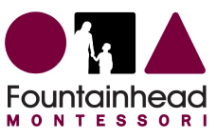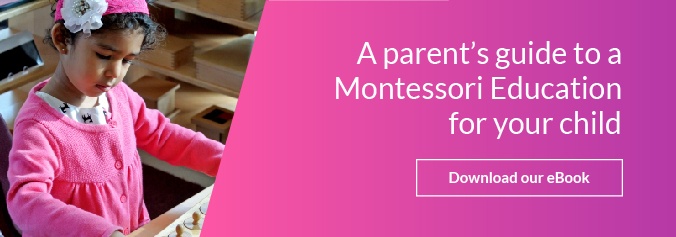The Montessori philosophy has been deeply described by Maria Montessori herself and can be easily read about today. There are several guiding principles that Maria Montessori intentionally included after her years of observing children in play and in class. Students who are given a Montessori education benefit from these primary principles because not only do they lean into the strengths of a child, but they also help build up skills that will stay with the children even into adulthood.
Let children play
Many times adults want to separate a child’s day by having a work time and a playtime. But the very reason why children play is to learn. Physical skills are developed and sharpened through practice. Play allows children to build their muscle memory and practice fine motor skills. Real life consequences are often learned in play. If the child drops something, it could break, hit their foot, or cause a mess. Being allowed to be hands on, try new ideas to solve a problem, and having no obvious objective except to play and explore, give the child the gift of wonder and enjoyment from what they are learning.
Give children a voice
Another principle of Montessori philosophy is giving children room to make their own decisions. Learning is naturally sought after and loved if you are interested in the subject. For children, deciding to spend more time on a topic or skill that they find fascinating or fun will hold their attention and allow them to learn it more thoroughly. The Montessori philosophy does not believe in rushing a child through a subject just so the teacher can check it off their list. Allowing children to decide what to learn and to be self-paced keeps the joy of learning intact.
Learning they can do it
Accompanied with choice, skills in being independent gives children not only a voice to say what they want to learn, but the skills to pursue it. A primary principle of Montessori philosophy is for children to practice doing everything themselves. When they are young, they will spill, drop, and knock things over as they learn to develop these skills. But messes can be cleaned up. The confidence that comes from doing things independently will empower your child to pursue the learning in a more personal way.
Teach children that order matters
With choice and play as guiding principles in her method, Maria Montessori also held an orderly environment as an essential key that provided balance for the other principles. A bedroom, classroom, or playroom should be kept tidy and learning play should be focused. A room with everything interesting strewn around on the floor is not conducive to a learning environment. Children should take out an item to play with and explore, and then return it to its proper place, completely putting it back together before moving on to the next thing.
If you are wanting to enroll your child in a Montesssori school in the Bay Area, Fountainhead Montessori School has multiple campuses in the area. Give Fountainhead Montessori School a call to set up an observational appointment at a campus near you.












Let us know what you think about this post
Put your Comment Below: